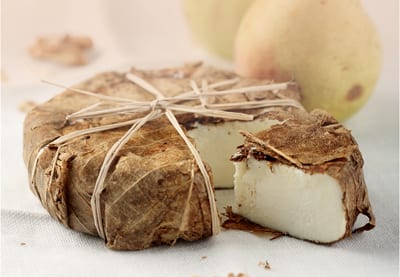It’s a great shame that in our country there is no culture or tradition of consuming goat’s milk and products made from goat’s milk, perhaps that’s why the total share of goat’s milk in Serbia is at a negligible level compared to Europe
By sheer coincidence, and led by health reasons, Mr Predrag Nikčević decided to invest in a goat farm and dairy. Within the framework of company Beocapra, the brand KOZARI (Goat Keepers) has been developing successfully for six years and attracting more customers on a daily basis, but the greater concern of the state would be more than welcome, in the form of subsidies that would significantly improve production, as is the practice in developed European countries.
“We began by first purchasing a milking herd of 180 Saanen goats from Upper Austria and buying land, but prior to that we read all the relevant literature we could find and by 2009 we’d rounded off the entire process with infrastructure. Our initial idea was to sell goat’s milk, but when we discovered that there was only one major purchaser of goat’s milk and that existing dairies don’t generally have a goat programme, we opted for the second stage and created a dairy in 2010,” says Predrag Nikčević, General partner and co-owner of Beocapra, speaking to CorD.
 We also opted for a smaller series and packages of lower weight, in order to be competitive in European markets, with a lot of manual work, but in accordance with world standards for premium quality production.
We also opted for a smaller series and packages of lower weight, in order to be competitive in European markets, with a lot of manual work, but in accordance with world standards for premium quality production.
Beocapra has introduced ISO 9001:2008, HACCP, the ISO FSSC 22000 standard, a HALAL certificate, as well as all relevant health certificates on food safety. The company also possesses permits enabling it to sell its products on the markets of the EU and the Russian Federation, which are possessed by a very small number of dairies in Serbia.
In Serbia, subsidies are seven dinars per litre of milk, whether cow’s or goat’s, even though cows provide seven times more milk than goats, which should be separated, but subsidies should also be introduced according to home head. Premiums are also much lower than in all of the countries of the region, and are particularly low compared to EU countries.The state could establish a distribution centre for small dairies and assist in export logistics
Our goat’s milk products are in the higher price range, which is perhaps the reason why there are fewer consumers in Serbia for whom that range is accessible, but then we are increasingly recognised as a brand on foreign markets. Goat whey, which is a by-product in the process of making cheese, is, according to our interlocutor, the company’s best-selling product, and is also recognised by consumers as a product that is excellent for consumption by people who have a problem with excess body fat.
Serbia is not really a country that helps agricultural producers, while another wall is represented by chain stores, which means that for small producers like us all kind of costs is exceptionally high. There are also expensive analyses of quality, but also unfair competition, particularly linked to the sale of products without any kind of evidence of origin or confirmation of the health and safety of foodstuffs.
In order for us to overcome these problems, we opted for export, which also had really high costs. However, it is slowly paying off – we now export to the markets of the EU and Russia; we are striving to penetrate the countries of the Middle and the Far East, while we are also gradually penetrating the American market.
Markets mature slowly, but as the trend of healthy nutrition is spreading across the planet, I think our time has yet to come.
Our products:
– Goat Milk
– Goat Whey
– Goat Yogurt
– Semi-hard full-fat goat cheese with natural liquid smoke flavour
– Semi-hard full-fat goat cheese in extra virgin olive oil
– Soft ripened double cream in oak ash
– Soft ripened double cream in oak bark and ash